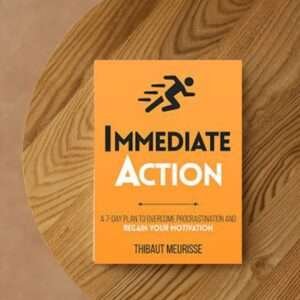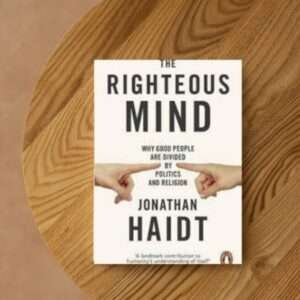Essentialism: The Disciplined Pursuit of Less
About the book: Essentialism
Essentialism is bliss in today’s fast-paced and demanding world, many individuals find themselves overwhelmed by endless to-do lists, constant distractions, and a never-ending stream of responsibilities. In “Essentialism: The Disciplined Pursuit of Less,” Greg McKeown presents a compelling argument for a different approach—a philosophy and mindset called essentialism. This book review explores the key concepts and insights from “Essentialism,” highlighting its practical strategies for leading a more focused, meaningful, and fulfilled life.
A brief review of the Book: Essentialism
“Essentialism” challenges the notion that we can and should do it all. McKeown argues that in order to live a more purposeful and fulfilling life, we must adopt the discipline of essentialism—essentially, the relentless pursuit of less but better. The book emphasizes the importance of setting clear priorities, eliminating non-essential tasks, and making deliberate choices that align with our values and long-term goals.
McKeown introduces the three core principles of Essentialism: Explore, Eliminate, and Execute. Through exploration, we learn to discern the vital few from the trivial many. By eliminating the non-essential, we create space and time for what truly matters. Finally, through focused execution, we devote our energy and resources to the essential tasks and projects that lead to significant outcomes.
The author provides practical strategies and techniques to help readers embrace essentialism in their personal and professional lives. These include learning to say “no” gracefully, setting boundaries, creating buffer time for rest and reflection, and embracing the power of small wins. McKeown also highlights the importance of identifying and leveraging our unique strengths and talents to make the highest possible contribution.
Key Points from the Book: Essentialism
- The Power of Choice: “Essentialism” emphasizes the importance of deliberate choice-making. McKeown encourages readers to evaluate opportunities, obligations, and requests against their essential priorities. By consciously choosing what truly matters, individuals can avoid spreading themselves too thin and make significant progress in the areas that align with their values.
- The Freedom of Saying “No”: Learning to say “no” graciously is a crucial skill in the pursuit of essentialism. McKeown explains that saying “no” to non-essential tasks and commitments allows individuals to focus their time and energy on what truly matters. It is through these intentional refusals that one can create space for deep work, meaningful relationships, and personal growth.
- The Joy of Essential Living: Embracing essentialism can bring joy, fulfillment, and a sense of purpose to our lives. By eliminating distractions and aligning our actions with our values, we create space for meaningful experiences, growth, and true connection. McKeown encourages readers to identify and pursue their true passions, talents, and interests, allowing them to lead lives of purpose and satisfaction.
10 Lessons to Learn from the Book: Essentialism
- Prioritize what truly matters: Essentialism teaches us to focus on the few things that are truly important and let go of the non-essential.
- Say no gracefully: Learning to say no to distractions, requests, and opportunities that don’t align with our priorities is essential for regaining control of our time and energy.
- Embrace the power of choice: Recognize that we have the power to choose how we spend our time and energy. Make deliberate choices that align with our values and goals.
- Create space for deep work: Carve out uninterrupted time for focused, meaningful work that allows for maximum productivity and creativity.
- Let go of perfectionism: Understand that perfectionism can hinder progress. Embrace the concept of “done is better than perfect” and focus on making meaningful progress instead of striving for flawlessness.
- Set boundaries: Establish clear boundaries to protect your time and energy. Learn to say yes to the right things and no to the things that don’t align with your priorities.
- Simplify decision-making: Streamline your decision-making process by focusing on the essential information and eliminating unnecessary choices. This helps reduce decision fatigue and enhances clarity.
- Cultivate essential relationships: Nurture and invest in the relationships that truly matter to you. Surround yourself with people who support your essential goals and values.
- Take care of yourself: Prioritize self-care and well-being. Recognize that taking care of yourself allows you to show up fully and effectively in all areas of your life.
- Reflect and evaluate regularly: Regularly assess your progress, goals, and priorities. Make adjustments as needed to ensure you stay on track with what truly matters to you.
Conclusion
“Essentialism: The Disciplined Pursuit of Less” is a thought-provoking book that challenges conventional wisdom and invites readers to embrace a more intentional and focused approach to life. Through practical strategies and inspiring anecdotes, Greg McKeown guides readers toward the path of essentialism—a philosophy that can lead to greater clarity, effectiveness, and fulfillment. By prioritizing what truly matters and eliminating the non-essential, readers can create a life that is rich in meaning, purpose, and joy.
Follow Reviewzade on Instagram for regular updates. Check here for more book reviews.




